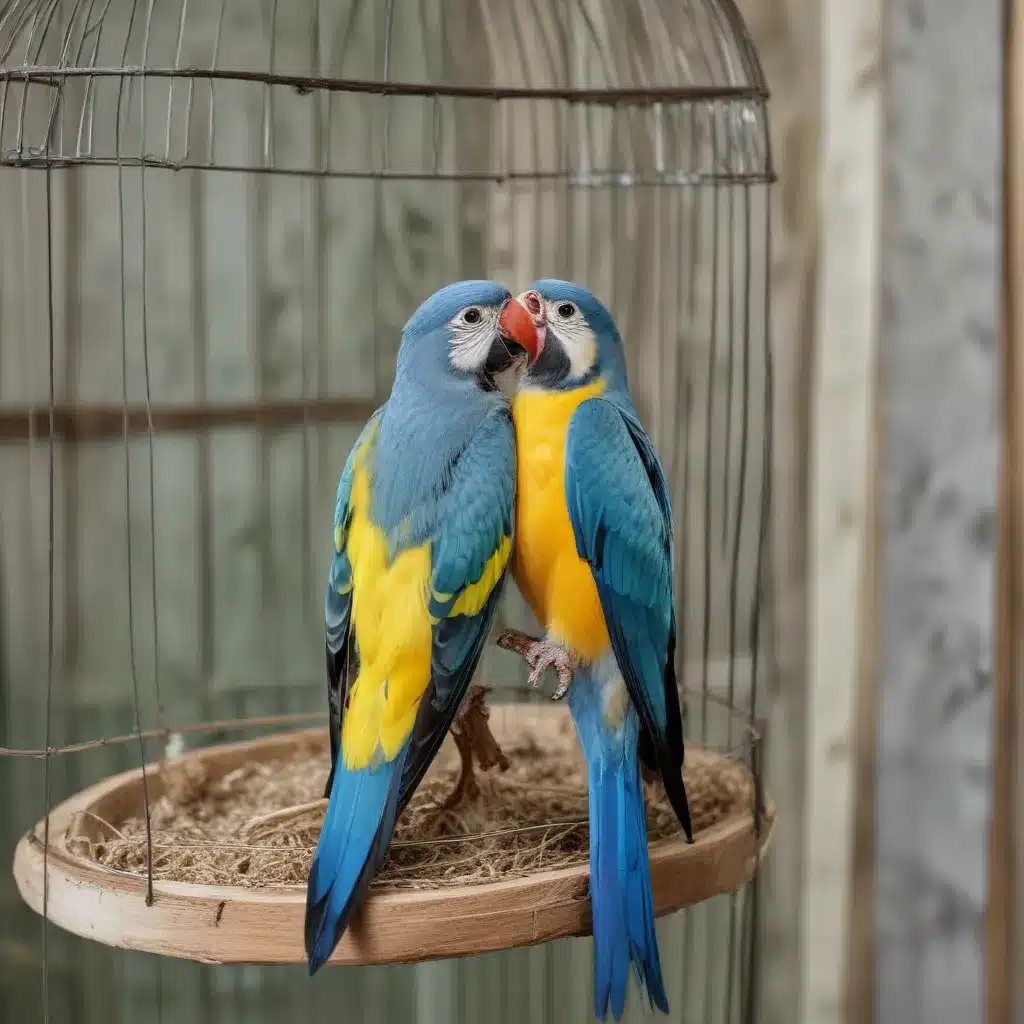
Avian Diversity and Home Habitats
The joy and wonder of sharing your living space with feathered companions is an experience like no other. Whether you’re the proud parent of a vibrant cockatoo, a sassy cockatiel, or a majestic macaw, the privilege of nurturing these magnificent creatures brings both immense rewards and profound responsibilities. As an experienced avian caretaker, I’ve had the privilege of witnessing the incredible diversity of bird species and their unique adaptations that make them such captivating housemates.
Types of Flighted Birds
From the nimble agility of parrots and parakeets to the soaring grace of hawks and eagles, the world of flighted birds is a tapestry of incredible diversity. Each species has its own set of physical and behavioral traits that shape their needs and capabilities within a home environment. Parrots, for example, are known for their strong beaks, dexterous feet, and innate curiosity, making them excellent climbers and problem-solvers. Cockatoos and cockatiel, on the other hand, are renowned for their endearing personalities and the distinctive crests that adorn their heads.
Bird Behavior and Adaptations
Beyond their physical traits, it’s essential to understand the behavioral patterns and natural adaptations of our feathered friends. Flighted birds are inherently driven by the instinct to explore their surroundings, navigate through space, and exercise their impressive aerial abilities. This innate need to fly can sometimes manifest as aimless “acrobatics” within the confines of a home, as they seek to satisfy their inherent urge for freedom of movement.
Aviary Design and Safety
Crafting a safe and enriching environment for flighted birds in a home setting requires a thoughtful approach to aviary design and layout. The goal is to create a space that caters to their natural behaviors while minimizing the risks of injury or unintended escapes. This involves carefully considering factors such as ceiling height, window placement, furniture arrangement, and the strategic use of perches, toys, and hiding spots.
Feeding and Nutrition for Flighted Birds
Ensuring the optimal health and well-being of our feathered companions goes beyond providing a safe and stimulating living space. Proper nutrition is a critical aspect of avian care, as flighted birds have unique dietary requirements that must be met to support their active lifestyles and maintain their vibrant plumage.
Balanced Diets for Avian Health
A well-balanced diet for flighted birds should consist of a variety of high-quality pellets, fresh fruits and vegetables, and occasional treats. It’s important to research the specific nutritional needs of your bird species, as their dietary preferences and caloric requirements can vary significantly. For instance, larger birds like macaws and cockatoos may require a higher protein intake to fuel their energetic flights, while smaller species like budgies and cockatiels may thrive on a more carbohydrate-rich diet.
Hydration and Water Provision
Alongside a nutritious diet, ensuring that your flighted bird has access to clean, fresh water is essential for their overall health and well-being. Birds are particularly susceptible to dehydration, and providing a reliable source of water can help prevent a range of health issues, from kidney problems to feather and skin conditions.
Avian Health and Well-being
Maintaining the optimal health and well-being of your flighted birds is a multifaceted endeavor that encompasses preventative care, early detection of potential issues, and a commitment to enriching their environment.
Common Avian Ailments and Preventions
As responsible avian caretakers, it’s crucial to be aware of the common health concerns that can affect our feathered friends. From respiratory infections and feather-plucking to metabolic disorders and parasitic infestations, understanding the signs and symptoms of these conditions can help us take proactive steps to prevent and address them. Regular veterinary check-ups, proper hygiene practices, and diligent monitoring of your bird’s behavior and physical condition are all essential elements of maintaining their overall health.
Enrichment and Exercise for Birds
Flighted birds are inherently active and curious creatures, and providing them with adequate opportunities for physical and mental stimulation is essential for their well-being. This can be achieved through a variety of enrichment activities, such as rotating toy selections, offering puzzle feeders, and encouraging natural behaviors like climbing, foraging, and flying within the confines of a safe aviary.
Legal and Ethical Considerations
Responsible bird ownership extends beyond the immediate care and well-being of our feathered companions. It also requires an understanding of the legal and ethical guidelines that govern the keeping of flighted birds, both for the protection of the birds themselves and the broader community.
Responsible Bird Ownership
As avian enthusiasts, we have a duty to ensure that our beloved birds are not only thriving but also contributing to a sustainable and responsible pet bird industry. This means educating ourselves on best practices for bird care, seeking out reputable breeders or rescue organizations, and advocating for the welfare of all captive birds.
Regulatory Guidelines for Aviaries
Depending on your location, there may be specific regulations and guidelines that govern the establishment and maintenance of aviaries within residential settings. These can include requirements for enclosure size, ventilation, outdoor access, and even the types of bird species that are permitted. It’s crucial to research and comply with all relevant laws and ordinances to ensure the safety and legality of your aviary.
By embracing the role of an experienced avian caretaker, you can create a harmonious and enriching environment for your flighted birds to thrive. Through a deep understanding of their unique needs, a commitment to their health and well-being, and a responsible approach to ownership, you can foster a lasting bond with your avian companions and contribute to the overall welfare of the avian community. Remember, with the right guidance and care, your home can become a haven for these magnificent Aviary Acrobats.


